Texas Truck Insurance Coverage
Essential coverage for Lone Star State haulers
Texas Truck Insurance Coverage
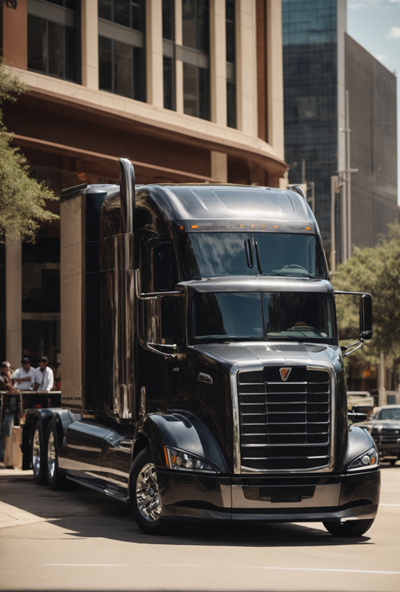
Do you need cheap Texas truck insurance, along with solid coverage that properly protects you? Pickup trucks are immensely popular in the Lone Star State, with over 5 million registered in Texas. That’s 20% of all vehicles on Texas roads! No other state has as many trucks per capita as Texas.
While owning a truck has many benefits, insuring one can come with higher premiums than insuring other vehicles. Truck insurance rates in Texas vary widely based on factors like your driving record, age, vehicle type, location, chosen coverages, and more.
This article will take a deep dive into truck insurance in Texas, including common coverages, tips for lowering your rates, and the cheapest and most expensive trucks to insure. By following some proven strategies, you can get cheap Texas truck insurance and save more of your hard-earned money.
Truck Insurance Coverages in Texas
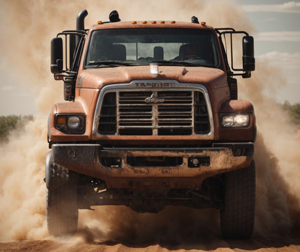
The coverages included in your Texas truck insurance policy impact both your protection and premiums. Texas requires all vehicles to carry a minimum level of liability coverage:
- $30,000 bodily injury liability per person
- $60,000 bodily injury liability per accident
- $25,000 property damage liability
However, experts recommend carrying more than the minimum and getting full coverage if you can afford to.
Here are some common coverages to consider:
- Liability Truck Insurance
This coverage protects you if you cause an accident that injures another driver or damages their property. It pays for expenses like medical bills, lost wages, and repair costs (up to your policy limits). Higher limits are wise especially if you have significant assets to protect. Many experts recommend at least $100,000 per person and $300,000 per accident.
- Collision and Comprehensive Coverage For Texas Trucks
Collision coverage pays to repair or replace your truck if it’s damaged in an accident you cause. For example, if you’re at fault in a crash with another vehicle or object, collision coverage will pay for repairs to your truck, up to the actual cash value of the vehicle minus your deductible. Comprehensive coverage pays for damage to your truck from other events besides collisions, like fire, theft, vandalism, hitting an animal, or natural disasters like hail or floods.
In Texas, you’re legally required to carry at least basic liability insurance on your truck, but collision and comprehensive are optional. Without collision or comprehensive, you’d have to pay all repair or replacement costs out-of-pocket if your truck is damaged.
- Uninsured and Underinsured Motorist (UM/UIM)
Texas has high rates of uninsured drivers. UM covers your medical bills and vehicle damage if you’re hit by a driver with no insurance. UIM kicks in when a driver has insurance but not enough to cover all your losses. These protect you when others break the law.
- Personal Injury Protection (PIP)
PIP pays for you and your passenger’s medical bills after an accident, regardless of who caused it. It may also cover lost wages and other expenses. While PIP is optional in Texas, it can be useful protection.
- Other Add-On Coverages
You may want extra coverage like roadside assistance, rental reimbursement, custom parts/equipment value, and towing & labor costs. Consider them if you want more peace of mind.
Factors That Affect Texas Truck Insurance Premiums

- Type of truck – Rates are higher for more expensive trucks and new trucks.
- Truck usage – Local delivery trucks have lower rates than long-haul, interstate trucks that rack up more mileage.
- Driving history – Drivers with accidents or moving violations on record pay more for collision and comprehensive.
- Deductible amount – Choosing a higher deductible (e.g. $2,500 instead of $500) reduces your premiums.
- Coverage limits – Higher limits for collision/comprehensive translate to higher premiums.
- Location – Insurance rates are partially based on your truck’s garaging address and areas where it’s driven. Urban areas cost more than rural.
- Driver age – Younger drivers are seen as higher risk and charged more.
- Credit history – Insurers often check your credit as a proxy for responsibility. Good credit means lower premiums.
- Claims history – Frequent collision/comprehensive claims will make your Texas truck insurance rates go up at renewal time.
Strategies for Lowering Your Texas Truck Insurance Premium
With the right moves, you can secure a competitive rate on Texas truck insurance. Here are some tips that can lead to savings:
- Raise your deductibles – Opting for higher deductibles like $750, $1,000 or $2,500 can substantially reduce premiums. Just be sure you have funds set aside should you need to pay the deductibles in the event of a claim.
- Bundle policies – Insuring your home/condo and auto(s) with one provider usually results in discounts of around 10% to 20%.
- Check occupational discounts – Some insurers offer lower premiums for teachers, firefighters, law enforcement officers, and other occupations. Ask providers if they offer any occupational perks.
- Maintain good credit – Having a solid credit score often equates to lower rates. Check your credit reports regularly and take steps to improve any blemishes.
- Take advantage of safety features – Alarm systems, anti-theft devices, backup cameras and other safety tech can earn you a break on premiums (usually 5% to 15%).
- Drive safely and claim-free – Avoid accidents, speeding tickets and claims if possible. Drivers with clean records enjoy the best rates.
- Compare quotes regularly – Rates can vary widely between different insurance companies. Shop around with local agents and online.
- Ask about discounts – Providers offer discounts for good students, completing defensive driving courses, insuring multiple vehicles, paying annually, going paperless, and more. Ask to see if you qualify.
- Modify your vehicle – Upgrading safety and anti-theft features can help lower your costs. Consider improvements like daytime running lights and VIN etching.
- Reduce your mileage – The more miles you drive, the more risk you take on. Cutting back on driving can mean lower premiums.

Texas Truck Insurance Quotes from Top Providers
To get an idea of the cost of insuring a truck in Texas here are ten sample quotes. Rates are based on a 40-year-old man insuring a 2019 Ford F-150 XLT with $100,000 liability coverage, $500 deductibles for collision and comprehensive, and $5,000 in PIP coverage.
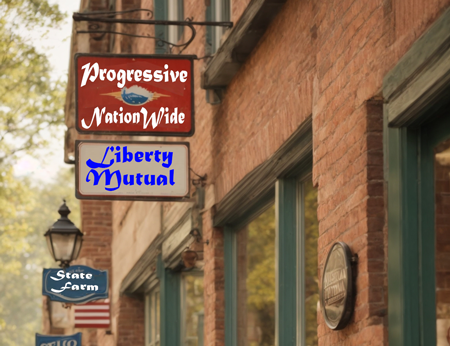
- State Farm: $1,682 per year
- Allstate: $1,974 per year
- Farmers: $1,889 per year
- Progressive: $1,834 per year
- AAA: $1,695 per year
- Liberty Mutual: $1,997 per year
- Travelers: $1,636 per year
- Nationwide: $1,812 per year
- USAA: $1,134 per year (for military members)
- Texas Farm Bureau: $1,378 per year
As you can see, annual premiums range from around $1,134 to $1,997 for similar drivers and coverage. This highlights the importance of comparing multiple quotes. USAA offers the lowest rates, but drivers must meet military membership eligibility.
The Cheapest Trucks to Insure in Texas
The type of truck you drive is a major rate factor. Here are the 5 cheapest pickup trucks to insure in Texas:
- Nissan Frontier – This midsize truck earns excellent safety ratings and has low average repair costs. The annual premium for a base model averages around $1,565.
- Toyota Tacoma – Known for reliability, the Tacoma has class-leading resale value, signaling lower depreciation. The average yearly insurance cost is about $1,595.
- GMC Canyon – With solid crash test results and modest repair costs, the Canyon makes insuring affordable. Premiums average approximately $1,650 annually.
- Honda Ridgeline – This safe and reliable truck sees fairly low rates. The average yearly cost is around $1,710.
- Ford Ranger – The Ranger’s small size, safety tech, and high resale value help keep insurance costs down. The average is about $1,735 per year.
The Most Expensive Trucks to Insure in Texas
On the other end of the spectrum, these 5 trucks tend to have the highest insurance rates in Texas:
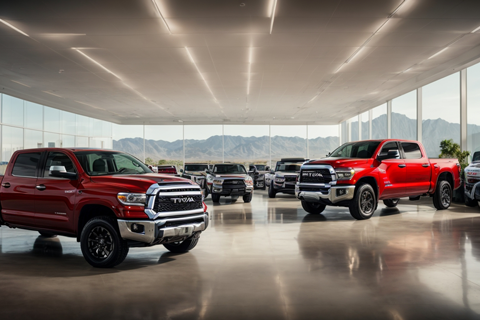
- Ford F-250 – Large and expensive to repair, insurance on this heavy-duty truck runs about $2,420 annually.
- RAM 2500 – Another heavy-duty rig, the 2500 has hefty premiums of around $2,475 per year.
- GMC Sierra 3500 HD – This heavy-duty truck costs a lot to fix after accidents, and hiking insurance costs to around $2,490 a year.
- Chevrolet Silverado 2500HD – With massive repair bills, rates for this truck average roughly $2,350 annually.
- Toyota Tundra – Despite a solid safety reputation, the Tundra costs more to insure due to high price tags for OEM parts. Premiums average around $2,250 per year.
Heavy-duty pickups often have the highest premiums due to size, powertrain options, and high repair costs when damaged. However, insurance rates can vary significantly even between similar trucks based on individual factors. Carefully choose your truck and shop around extensively for Texas truck insurance quotes.
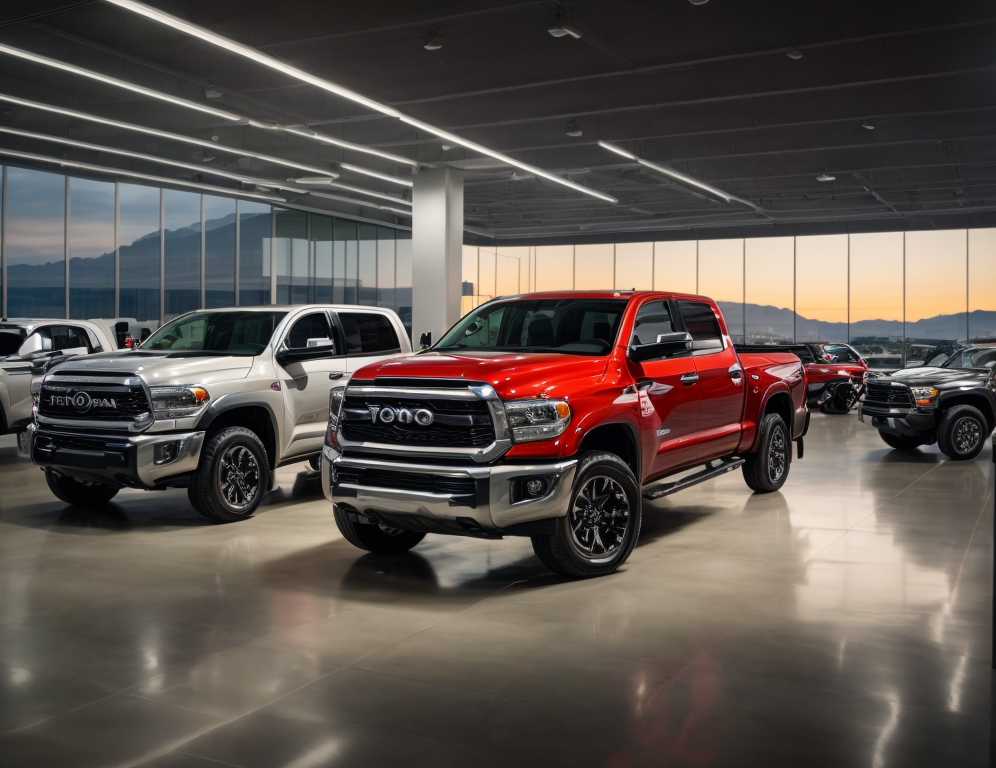
With a little research and smart planning, you can cruise around Texas with peace of mind knowing your vehicle and assets are covered. With the freedom trucks provide comes the responsibility to protect yourself and others on the road.
To get the best rate for Texas truck collision and comprehensive insurance, it’s recommended to get quotes from at least ten insurers so you can compare a bunch of rates. Work with a Texas broker who has access to multiple Texas truck insurance carriers and also compare direct rates online.
